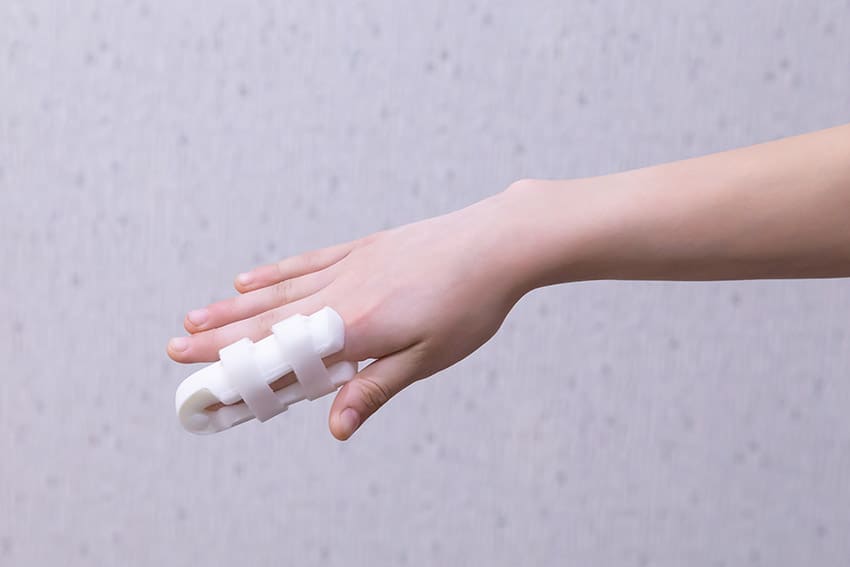Bones in fingers are small but still susceptible to fractures. If you think it is a minor injury, you are mistaken as these bones in the fingers line up, enabling you to perform all hand functions. Everything is possible with fingers, like holding anything, gripping a pen, typing on a computer, playing an instrument, etc. When you fracture a finger bone, it can
become dysfunctional and affect your entire hand, making it difficult to perform the simplest tasks. Do you know your hand consists of 27 bones? It comprises eight bones in your wrists (carpal), five bones in the palm of your hand (metacarpals), and 14 bones in your fingers (phalanges). Finger bones can be fractured after an injury, which is extremely common. One can slam fingers in the door, have an accident while working with tools, or be hit with a hard object, some of which can fracture a finger.
Symptoms of Finger Fracture
People with weak bones are at a higher risk of fracture. Moreover, manual laborers or athletes have an increased risk of fractures. Even high-impact accidents or injuries can lead to broken fingers. Any pain, swelling, tenderness, limited range of motion, or misshape are signs; whenever you try to move, it can cause discomfort. However, if you don’t have extreme pain doesn’t mean you may not require any medical attention.
How Can We Help?
If you have injured your finger or experiencing the mentioned symptoms, it is always better to schedule a doctor’s appointment and not sleep over your signs. The doctor thoroughly examines which bone/bones fractured and how it happened. There is no one way of bone fractures as sometimes they break into several pieces or can be completely shattered, even broken into a spiral pattern. Imaging tests such as X-rays and computed
tomography are conducted to examine the fracture and understand how to treat it. In complicated situations, the doctor will likely consult hand surgeons and consider all possible options. Should you require surgery, our hand therapists will constantly communicate with your surgeon to determine your therapy needs to restore your range of motion. Sometimes the symptoms may not be severe, but still, medical attention is required.
If you have a question about whether your condition should be treated by one of our hand therapists, call Form Hand Wrist & Elbow Institute at (510) 480-3700.
If you are not currently under the care of a physician for your condition or would like to be evaluated by an Orthopedic Surgeon specializing in hand, wrist, and elbow conditions, please request an appointment online.


